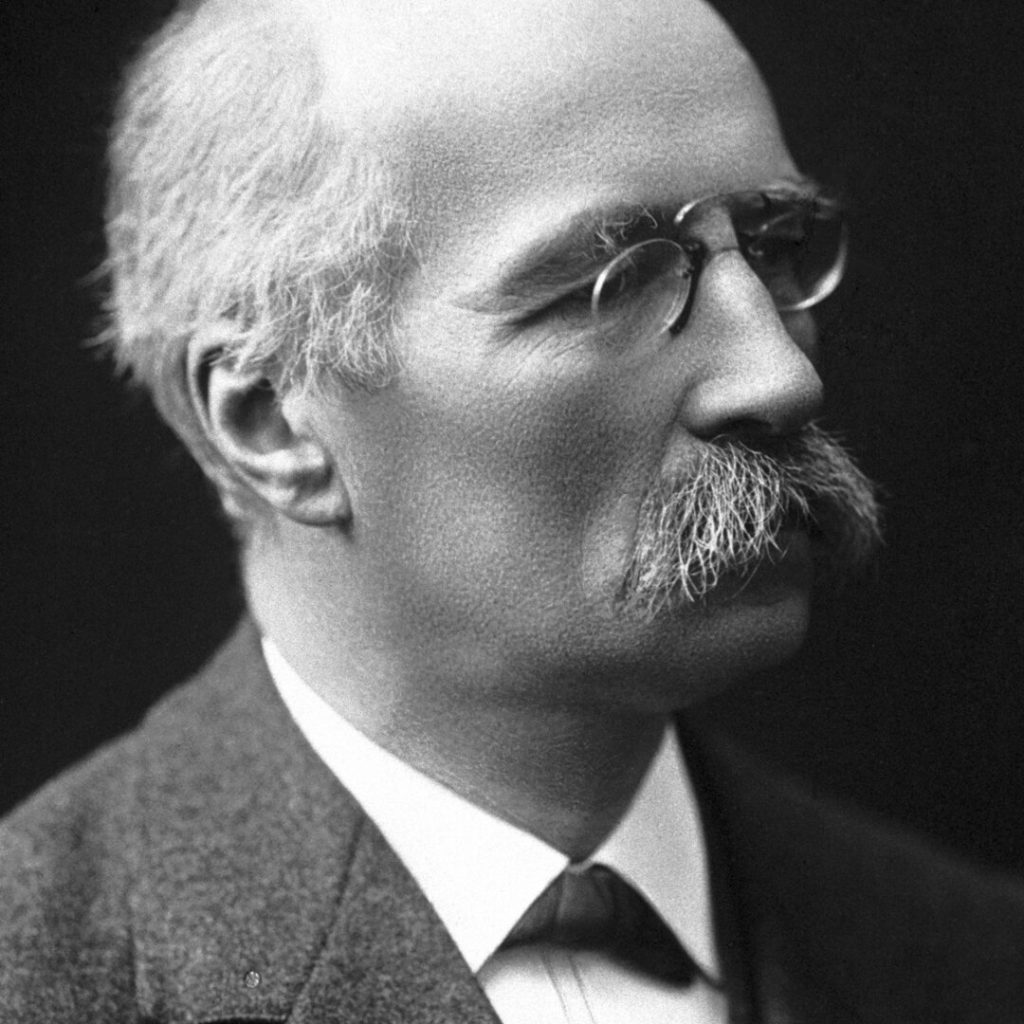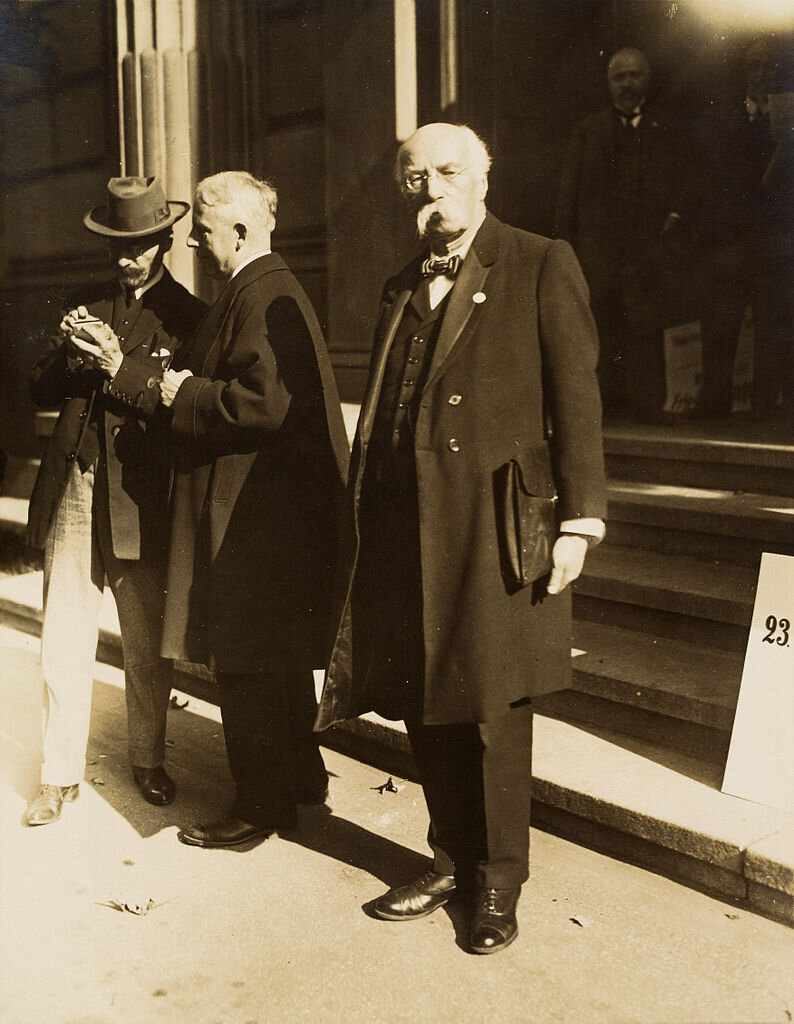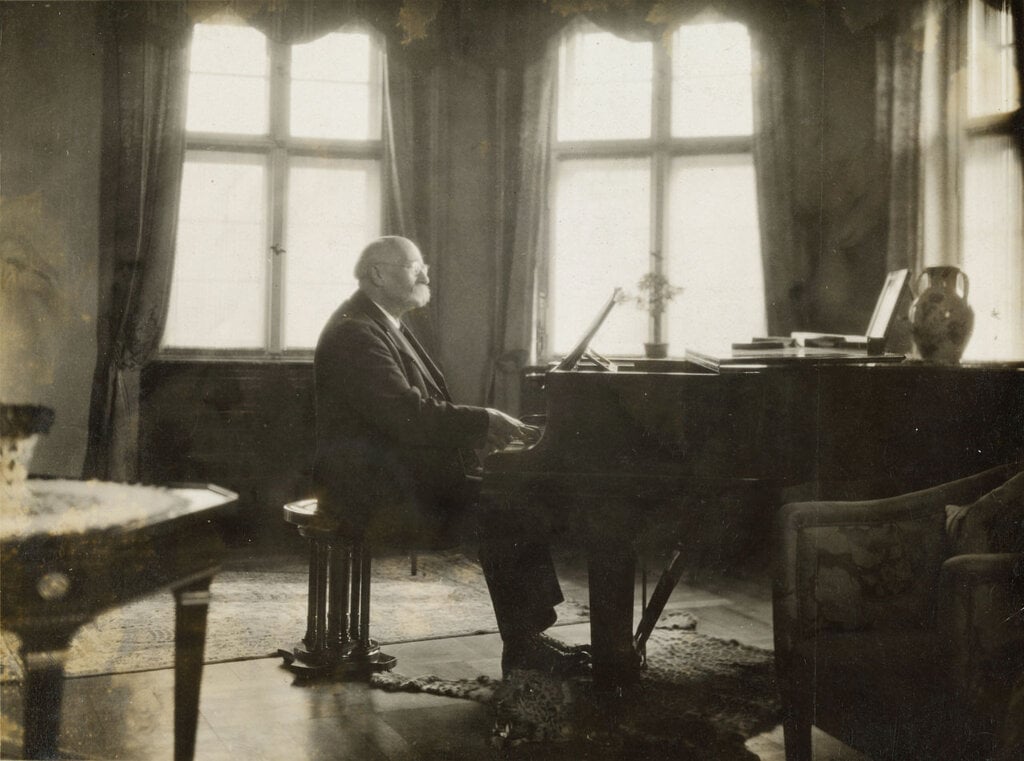Henri La Fontaine
Speed read
Henri La Fontaine was awarded the Nobel Peace Prize for his unparalleled contribution to the organisation of peaceful internationalism.

Full name: Henri La Fontaine
Born: 22 April 1854, Brussels, Belgium
Died: 14 May 1943, Brussels, Belgium
Date awarded: 10 December 1913
Socialist, international law expert, parliament member
Henri La Fontaine was the first socialist to be awarded the Nobel Peace Prize. A scholar of international law and member of the Belgian parliament, he made his greatest contribution as an activist in the international peace movement. He established an institute that gathered documentation on international activities from around the world. In 1910 he organised a world conference for international organisations, with the purpose of creating an “intellectual parliament” for humanity. La Fontaine served as president of the International Peace Bureau from 1907 until his death. When he was awarded the Nobel Peace Prize in 1913, he was widely regarded as the leader of the European peace movement.
"There is no one who has contributed more to the organization of peaceful internationalism, and his outstanding talent for administration has been invaluable to the peace movement."
Ragnvald Moe, Presentation speech, 10 December 1913.
Socialism for peace
Speaking at a peace conference in Sweden in 1910, La Fontaine emphasised that he was both a socialist and peace advocate. He believed that peace would first be achieved through socialism. He was a fierce critic of the capitalist system, in which conservatives controlled the schools and press, and he saw militarism and capitalism as inextricably linked to one another. La Fontaine viewed the Permanent Court of Arbitration in The Hague as the starting point for a pan-global organisation, an international parliament.

"Our party colleague has received the Nobel Prize. This decision must be welcomed by struggling workers throughout the world."
Headline in the Swedish newspaper Social-Demokraten, December 1913.
Humanist and idealist
La Fontaine was a man of many pursuits. As a member of the Belgian parliament, he was deeply involved in issues of social and foreign policy. He also worked actively to promote women’s rights. In 1895 he established a library institute whose purpose was to compile documentation on international activities and organisations throughout the world. Most of his peace prize award money was invested in this institute. La Fontaine used his involvement in the Esperanto movement and the Freemasons to further promote peace and understanding. He was also passionately interested in music and mountain climbing.

"Henry La Fontaine is the true leader of the peace movement in Europe."
Ragnvald Moe, Presentation speech, 10 December 1913.
Disclaimer: Every effort has been made by the publisher to credit organisations and individuals with regard to the supply of photographs. Please notify the publishers regarding corrections.
Learn more
Henri Marie La Fontaine (April 22, 1854-May 14, 1943) was born in Brussels ...
Nobel Prizes and laureates
Six prizes were awarded for achievements that have conferred the greatest benefit to humankind. The 14 laureates' work and discoveries range from quantum tunnelling to promoting democratic rights.
See them all presented here.
